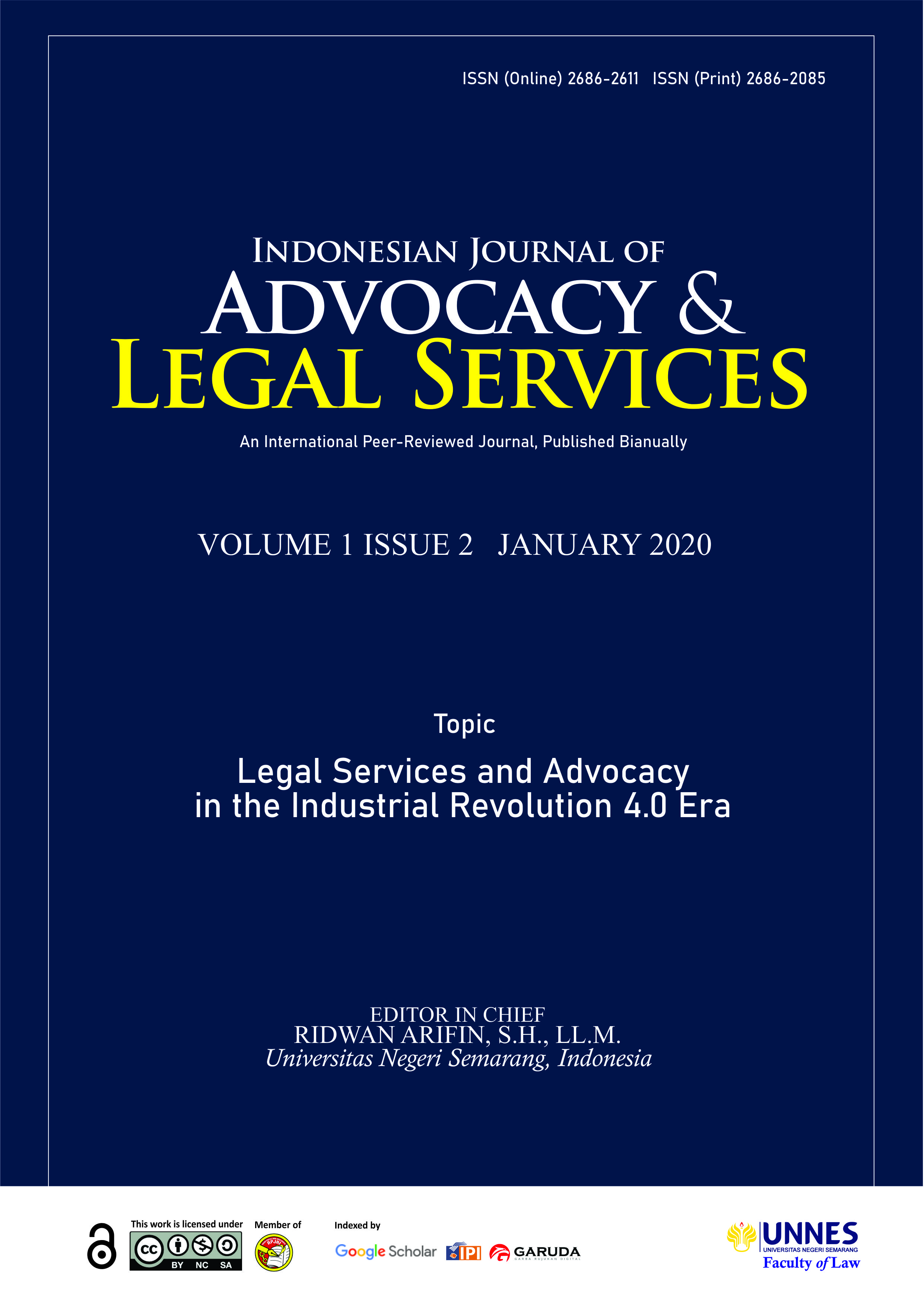Increasing Legal Capacity for Communities in the Context of Realizing a Village of Law Awareness and Child Friendly Study of Kedungkelor Village, Tegal Regency, Indonesia
Main Article Content
Abstract
The purposes of community services program and research are to support, analyze, and create an accountable, transparent, independent, legally-aware and child-friendly village in Kedungkelor village, Warureja sub-district, Tegal regency. The paper analyzed two major parts are taken in the title of the service as well as aware of the law and child worth. Legal awareness and worthy of children are considered important because the child's world is very determining how the child will grow up later so that the village apparatus and the community need to increase of awareness related to the law and in the policies formulated by the village government or the community itself must be child-oriented. The program implemented a to realize a village that is aware of the law and suitable for children in our service is providing free legal assistance, door-to-door programs for families aware of the law and the environment, leadership training, healthy snacks and hand hygiene programs, and anti-bullying programs. The paper concluded that there are some forms of activity that will initiate the formation of a village that is aware of the law and is suitable for children.
Article Details
The Authors(s) retain copyrights of the Article published on Indonesian J. Advoc. Legal Serv. However, before publishing, it is required to obtain written confirmation from Author(s) in order to ensure the originality (Author Statement of Originality). The statement is to be signed by at least one of the authors who have obtained the assent of the co-author(s) where applicable. This work licensed under a Creative Commons Attribution-NonCommercial-ShareAlike 4.0 International (CC BY-NC-SA 4.0).
References
Ibrahim, A. (2018). Rencana Dan Strategi Peningkatan Kesadaran Hukum Masyarakat. Gorontalo Law Review. 1(1), 15-24.
Laskarwati, B. (2018). Implementasi Nilai Kemanfaatan Hukum dalam Pencegahan Penyalahgunaan Narkoba Melalui Lomba Keluarga Sadar Hukum (KADARKUM). Lex Scientia Law Review. 2(1), 47-64.
Manan, B., & Harijanti, D.S. (2016). Konstitusi dan Hak Asasi Manusia. Padjajaran Jurnal Ilmu Hukum. 3(3), 448-467.
Marilang. (2017), Menimbang Paradigma keadilan Hukum Progresif. Jurnal Konstitusi. 14(2), 315-331.
Pradana, T.M.W. (2018). Model Pengajaran Hak Asasi Manusia (Antara Tekstual dan Kontekstual). Prosiding Semdikjar ke-II, ISSN 2598-6139, 4 August, 1161-1168. Retrieved from http://conference.unpkediri.ac.id/index.php/semdikjar/semdikjar2/paper/viewFile/260/219
Riyanto, A. (2015), Pengetahuan Hukum Konstitusi Menjadi Ilmu Hukum Kosntitusi. Jurnal Hukum dan Pembangunan 44(2), 185-208.
Republik Indonesia. (2011). Undang-Undang Nomor 16 Tahun 2011 tentang Bantuan Hukum. Kementrian Hukum dan HAM RI, Lembaran Negara Republik Indonesia Tahun 2011 No. 104, Menteri Sekretaris Negara: Jakarta.
Suradji. (2008). Etika dan Penegakan Kode Etik Profesi Hukum (Advokat). Jakarta: Badan Pembinaan Hukum Nasional Departemen Hukum dan HAM RI.
Waddong, M.H. (2000). Pengantar Advokasi dan Hukum Perlindungan Anak. Jakarta: Gramedia Indonesia.
Winarta, F.H. (2000). Bantuan Hukum Suatu Hak Asasi Manusia Bukan Belas Kasihan. Jakarta: Elex Media Komputindo.
Winata, F.H. (2009). Probono Publico, Hak Konstitusional Fakir Miskin Untuk Memeperoleh Bantuan Hukum. Jakarta: PT. Gramedia Pustaka Utama.
YLBHI. (2014), Panduan Bantuan Hukum di Indonesia. Jakarta: Yayasan Obor Indonesia.
Zuraidah, & Sadi Is, M. (2018). Perlindungan Hukum Terhadap Hak Asasi Anak Yang Menjadi Korban Kekerasan. Nurani. 18(1), 151-162.
